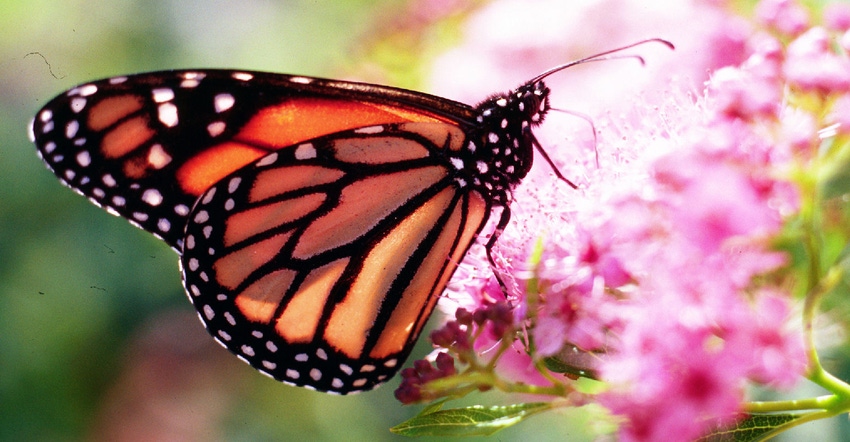December 27, 2018

The BASF Monarch Challenge stopped in seven locations across the U.S., working with farmers, farm families and golf courses to promote the planting of milkweed, which is essential for the survival of the monarch butterfly. The BASF Monarch Challenge is a biodiversity initiative seeking to restore the monarch butterfly population. Monarchs migrate from Canada to the oyamel fir forests of Mexico.
“As we stopped at each event, we found the idea of helping the monarch population really resonated with farmers,” said Chip Shilling, Sustainability Strategy Manager, BASF. “They want to leave a legacy for future generations, and one of the ways farmers can do this is to plant more milkweed on their land.”
Milkweed, the essential plant for the monarch butterfly life cycle and the sole food source for the monarch caterpillar, has become less common over the years. The Monarch Challenge encourages the planting of milkweed in non-crop areas of a farmer’s land and out-of-play areas of golf courses.
With the support of many this year, the challenge successfully garnered more than 2,600 farmers, farm families and others interested in monarch conservation, and led to partnerships with more than 70 golf courses. This increased awareness in the challenge helped Living Acres plant more than 32,000 milkweed seedlings across the U.S in 2018.
Many stories were shared along the Monarch Challenge’s migration this year, but one that stood out came from Hunter Grills, a ninth-generation farmer in northwest Tennessee. Wanting to help the initiative, he reached out to BASF and together with his two nieces, decided to plant a milkweed habitat on his farm this fall to be ready for next spring’s migration.
“As farmers, we understand weeds can be detrimental, but they are also essential to many insects and animals,” said Grills. “We are maintaining our crops so we can produce an adequate amount of food but also being good stewards of the land, and the Monarch Challenge provides us a way to do that.”
The Monarch Challenge first spread its wings in 2016 as part of the BASF Living Acres biodiversity program. Since taking flight, more than 4,000 participants have signed up for the Monarch Challenge, and 45,500 milkweed plants have been established on farm lands and golf courses from Rhode Island to Idaho.
“We want to continue growing the Monarch Challenge,” said Shilling. “There are many more milkweed plants to establish, and many more conversations to have on the importance of milkweed to the monarch population.”
To receive free plants next spring, visit MonarchChallenge.com to sign up and learn more about Living Acres and the Monarch Challenge.
Source: BASF
You May Also Like




